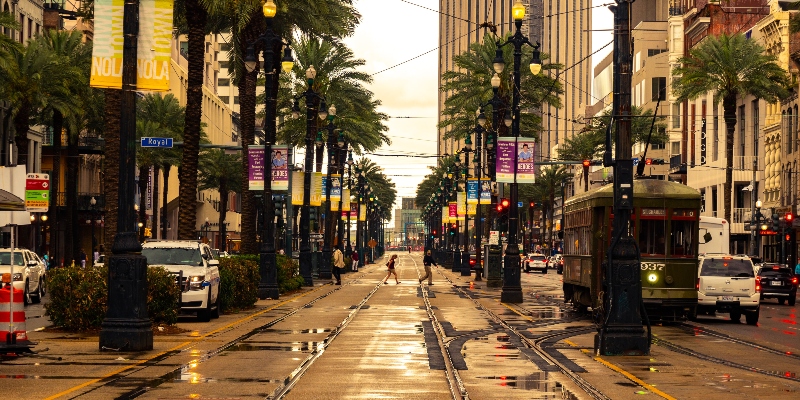Open Source is the world’s longest-running podcast. Christopher Lydon circles the big ideas in culture, the arts and politics with the smartest people in the world. It’s the kind of curious, critical, high-energy conversation we’re all missing nowadays.
*
That blood-red full moon of July looked for sure to be on fire, but only because we saw it through smoke that had drifted thousands of miles east across North America. We’re sorting through glimpses of an apocalypse this hour, reaching for the eerie, uncanny feel of this climate summer of 2021: oceanic flooding in German cities, and now inland China, too. Our listening post is New Orleans, favorite American river town and all-important port that’s dissolving as we speak; at the same time, it’s caught in the jaws of a rebounding pandemic. Louisiana this summer has the highest per capita increase in COVID cases and the third lowest vaccine rate in the country. It’s embattled but not quite hopeless, knowing it’s alive because it’s scared half to death.
The city of New Orleans, Louisiana, could seem to “get” climate change better than Boston, say, or New York, or Los Angeles. The New Orleans question is not whether global warming is real, or coming soon. In New Orleans the tipping point is history, and not to be undone. The question is how to cope with the next climate, and the answers can be imaginative and bold. That is the drift of Nathaniel Rich’s curious book, titled Second Nature: Scenes from a World Remade, about a variety of people already living in the next place. Some—like the celebrated historian John Barry—have found new identities battling to make the next climate more democratic than the last one. Nathaniel Rich comes first with a keynote thought: that he was moving forward in the climate story when he planted his young family in old New Orleans.
From the episode:
Nathaniel Rich: People who are living in New Orleans are doing so with their eyes open and a recognition that this city, this culture, this way of life won’t be around forever. And once you come to that awareness, I think it changes the way you make decisions about your priorities in life.
I was talking to this coastal scientist who was on the front page of the New Orleans Times-Picayune last year because he said, “We’re screwed.” That was, I think, the headline on A1 of the paper, that essentially we’ve crossed a tipping point with the marshes where no matter what we do with this master plan to rebuild the coast, at some point in the future, the coast will disappear and will rise essentially up to where Baton Rouge is now. And if New Orleans exists, it will be as an island city.
There’s something horrific about that idea, but he made the point to me that I continue to think about, which is that cities are like people. We shouldn’t expect them to be eternal. Great cities rise and fall and come into being and disappear. Once you understand that, it’s sort of like acknowledging mortality. It forces you to get a clearer perspective on things, and I think it informs the way one can live their own personal life.
________________________________
Subscribe now on iTunes, or wherever else you find your podcasts!
